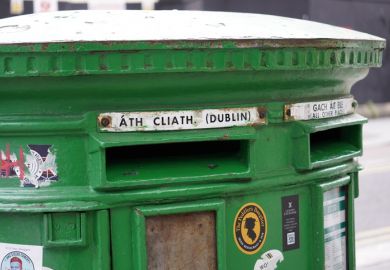Academics and students have criticised the “basic feedback” given by assessors brought in by a UK university to grade papers while staff are on a marking boycott.
One-word responses such as “excellent” and “perfect” have been given to those taking assessments at Queen Mary University of London, and staff have also claimed that grades had been “somewhat inflated”.
Lecturers have refused to mark assignments since early May as part of a long-running dispute over pay and pensions and in response to the university’s threat to dock 100 per cent of the wages of those taking part.
The local branch of the University and College Union accused Queen Mary of devaluing the quality of its degrees by allowing work to be marked by those who do not know the students or the subject matter.
One finalist in accounting and management said he was unhappy with the “alarming” feedback received from an external marker while his lecturer was participating in the boycott.
He said comments were “very basic” and focused on generic areas of the essay such as the structure, punctuation and bibliography, rather than engaging with the arguments he had made. Peers taking the same module had received the same feedback “word for word”, he claimed.
The university had considered outsourcing marking to a consultancy group, Curio, before the boycott began, but local UCU branch chair James Eastwood said he had been assured that the Australia-based company was not being used. Instead, he said, the university had stepped up attempts to find replacement markers from within and outside the institution.
“It’s not completely clear where they are finding the replacement markers from, but what is clear is the standard of marking is not good,” he said.
“They are marking work at breakneck speed. We’re seeing students being given hardly any feedback – and when they do, it is in the form of poor-quality comments that won’t help them improve.”
He said colleagues had noticed that grades seemed to be “somewhat inflated”, with the distribution of marks “uneven and odd” compared with what would normally be expected.
Dr Eastwood said grading exam scripts or even dissertations would be “very hard” without specialist knowledge or having taught the students involved.
“This is not what universities are about. Our role is giving feedback to students that helps them to improve their skills and understanding, which makes them more rounded individuals and helps them make valuable contributions to society,” he said.
Several other marking boycotts at UK universities have come to an end after branches agreed local deals. Dr Eastwood said staff had rejected a deal offered by management because it was felt that it did not compare favourably to the settlements others had achieved, but they remained open to negotiations.
A Queen Mary spokesman said that the marking boycott was impacting only a “very small” number of teaching programmes and that most students were unaffected.
“We can assure the small number of students impacted by the industrial action that their work is being assessed rigorously and their marks will be a true reflection of the quality of their performance,” he added.
The spokesman said that fewer than one in 50 Queen Mary academics had taken part in industrial action so far.
Register to continue
Why register?
- Registration is free and only takes a moment
- Once registered, you can read 3 articles a month
- Sign up for our newsletter
Subscribe
Or subscribe for unlimited access to:
- Unlimited access to news, views, insights & reviews
- Digital editions
- Digital access to THE’s university and college rankings analysis
Already registered or a current subscriber?








